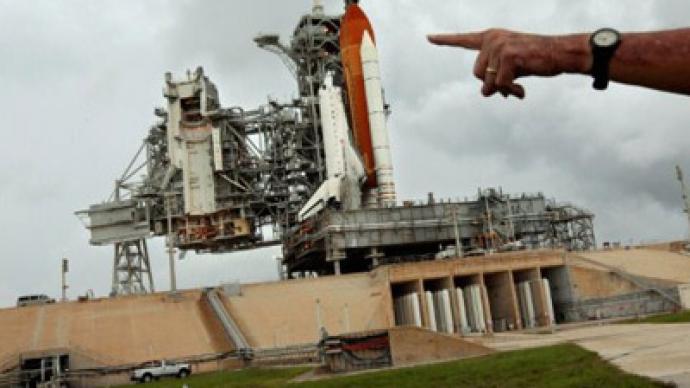End of NASA shuttle program means loss of “dream jobs”

NASA's historic final space shuttle mission may have to wait a little longer, with bad weather threatening to delay the launch. Atlantis’ final voyage will be an unforgettable moment for some, but painful for thousands that will lose their jobs.
Up to 10,000 people will be out of work at what was once Florida's thriving Space Coast as soon as the last shuttle makes its final voyage back to Earth. Home to many of the Kennedy Space Center workers, Rockledge is on the verge of becoming a ghost town.“Without the space program we’re pretty much nothing. This is what Cocoa Beach is built on – the space program – so a lot of people are going to be out of a job, out of homes,” says Daniel, one of the local workers.Anthony Crisafulli spent 23 years with the shuttle launch team as an engineer. With Atlantis blasting-off for its last mission, it means the end of his career with NASA, and the beginning of uncertainty. A year ago he started looking for a new job, but to no avail.“I have applied for jobs and so far I haven’t gotten any concrete responses. There are not that many jobs out there, for sure,” says Anthony.The US scrapped its shuttle program and now wants the private sector to come up with ways to get astronauts to space. Several companies are working on new vehicles, but it is not clear when they will be able to deliver them.One thing is certain though – they will be able to hire only a fraction of the skilled space industry workers who will be out of work soon.The first NASA shuttle never made it to space and was used for tests, before the Columbia Shuttle’s first launch into space in 1981. A total of five shuttles were used for space missions since then. Two of them were lost in tragic accidents in 1986 and 2003. Those losses and the skyrocketing cost per launch gradually led to the cancellation of the program.But critics say it is hard to estimate the losses that the end of the shuttle program will bring about both for the space industry and the people involved.“I think it’s a really bad thing for the United States to lose this skilled workforce. It’s going to be difficult to rebuild it,” believes Marianne Dyson, former NASA flight controller.For years the shuttle has been the only vehicle that could ferry the crew and a massive load of cargo to space. Officials say one of the reasons the program was scrapped is that it is safer and cheaper to send cargo and people separately – something that Russia, for example, has been doing for many years.But whatever the reasons for scrapping the 30-year-old program, for those who devoted their lives to it, it is the end of their dream job.“It’s kind of sad, because I’ve already seen a few of my friends go, and there’ll be more. People that I probably may never see again,” says Anthony.The scrapping of the program also means the end of a once vibrant scientific community that has grown-up around the shuttle.















